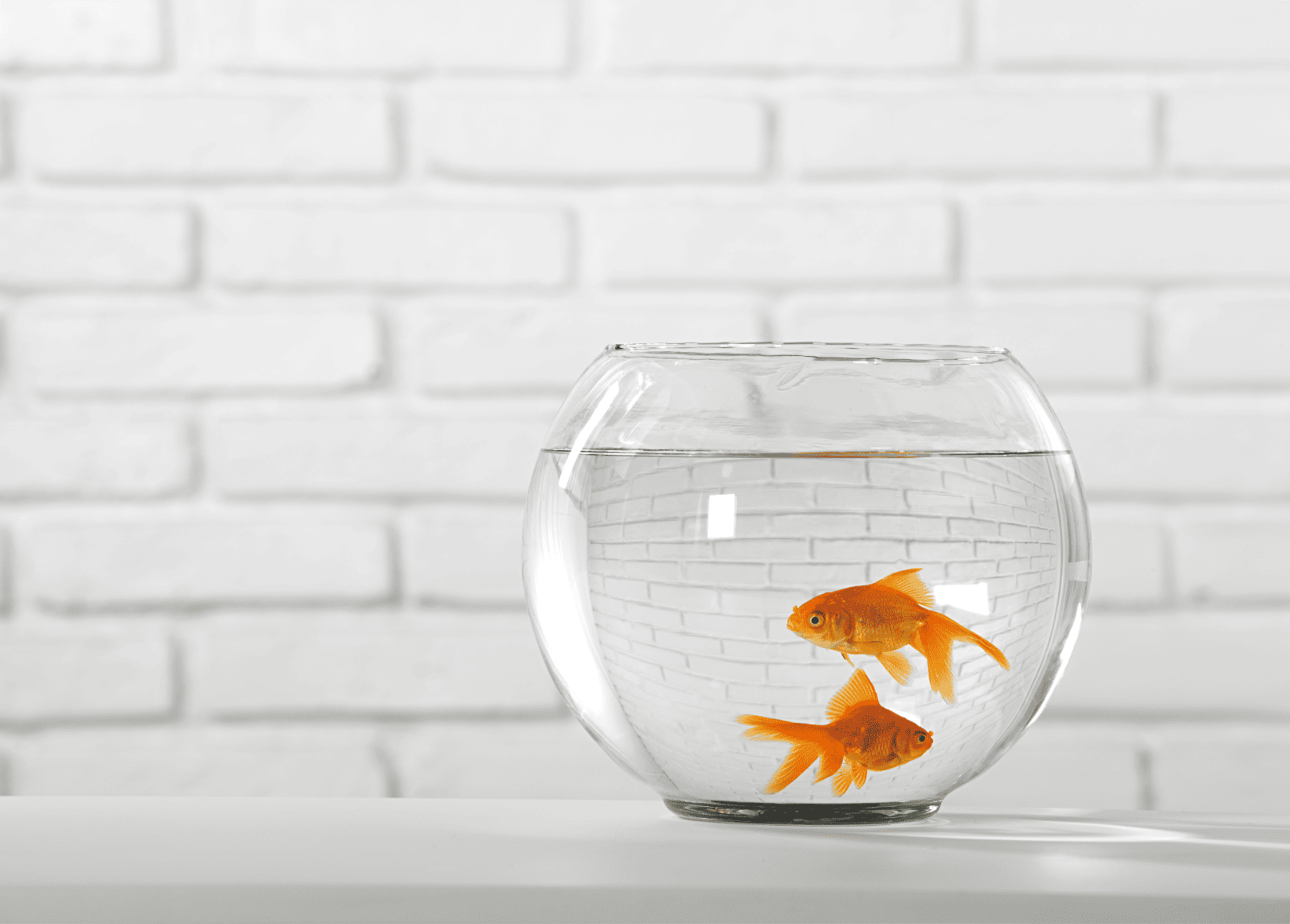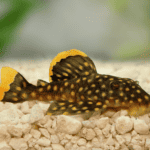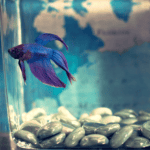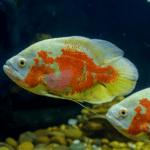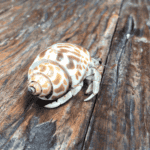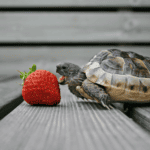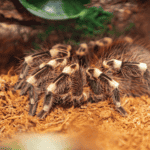The quest for the best food for your goldfish can be a labyrinthine journey, peppered with myriad options that can leave you perplexed. This article serves as a reliable compass to guide you through this maze, bringing you to the optimal nutritional choice for your finned friend.
Understanding Goldfish Nutrition
Goldfish are omnivorous creatures, drawing their nourishment from both plant and animal matter. Just as a balanced diet is crucial for humans, it’s equally essential for goldfish. Variety is the key that opens the door to their health and longevity.
Protein, carbohydrates, fats, fiber, vitamins, and minerals all play unique roles in your goldfish’s diet. Imagine these as the strings of a piano – in harmony, they produce a perfect symphony of health.
| Nutrient | Role |
|---|---|
| Protein | Muscle growth and repair |
| Carbohydrates | Energy |
| Fats | Energy storage, hormone regulation |
| Fiber | Digestive health |
| Vitamins and Minerals | Immune system, bone health |
Best Commercial Food: Pellets and Flakes
Navigating the pet food aisle can be as confusing as decoding a secret language. But fear not, when it comes to goldfish food, pellets and flakes are typically the most reliable options.
Pellets are nutrient-dense and are often water-stable, meaning they don’t dissolve quickly and pollute the tank. Flakes, on the other hand, are easier to eat for smaller fish but can cloud the water if overfed. Both types provide a balanced diet but should be supplemented with fresh foods for variety.
Consider these commercial food options as the steady rhythm in your goldfish’s nutritional symphony.
- GOLDFISH FORMULATION: Specially designed for use as a staple flake food for your goldfish or small koi.
- FOR DAILY FEEDING: Nutritionally balanced diet for optimal health, color and vitality.
- PROCARE FORMULA: Helps support fish’s immune system for optimal health and long life.
- CLEAN AND CLEAR WATER FORMULA: Designed to be easily digested, helping to keep aquarium water clean and clear.
- COLOR ENHANCING: Enhances the goldfish’s naturally brilliant colors.
Fresh Foods: The Melodic Supplements
Fresh foods serve as delightful interludes in the goldfish’s dietary routine. Think of them as the melodious tunes interspersed within the steady rhythm of commercial food.
- Vegetables: Zucchini, peas, spinach, and lettuce are excellent choices. They’re akin to the soothing notes of a flute, promoting digestive health.
- Fruits: Occasional treats of oranges or apples are like surprising trumpet blasts, offering a burst of vitamins.
- Proteins: Brine shrimp, daphnia, insect larvae and bloodworms are like the robust notes of a cello, supporting growth and muscle repair.
Remember, all fresh foods should be washed and cut into bite-sized pieces. Overfeeding fresh food can cause health problems, so moderation is key.
- Goldfish food that contains up to 40%, nutrient-rich Black Soldier Fly Larvae, the first ingredient
- High in multiple proteins like whole salmon – rich in Omega 3 and 6 for healthy skin, scales and fins
- Fortified with essential vitamins, amino acids and minerals for a balanced daily diet
- Slow sinking pellet format (5-7mm) – all fish can feed at their preferred depth; feed as much as fish can eat in two minutes, two or three times daily
- Sustainably processed in small batches for quality control and maximum freshness
Understanding Overfeeding and Underfeeding
Feeding a goldfish is not unlike conducting an orchestra. Overfeeding is like playing the music too loud, leading to health problems and a dirty tank. Underfeeding, on the other hand, is like a muted performance – your goldfish becomes malnourished and weak.
The general rule is to feed your goldfish as much as it can consume in 2 minutes, twice a day. Adjust this routine based on your goldfish’s specific needs. The music must play, but it should never overwhelm the orchestra.
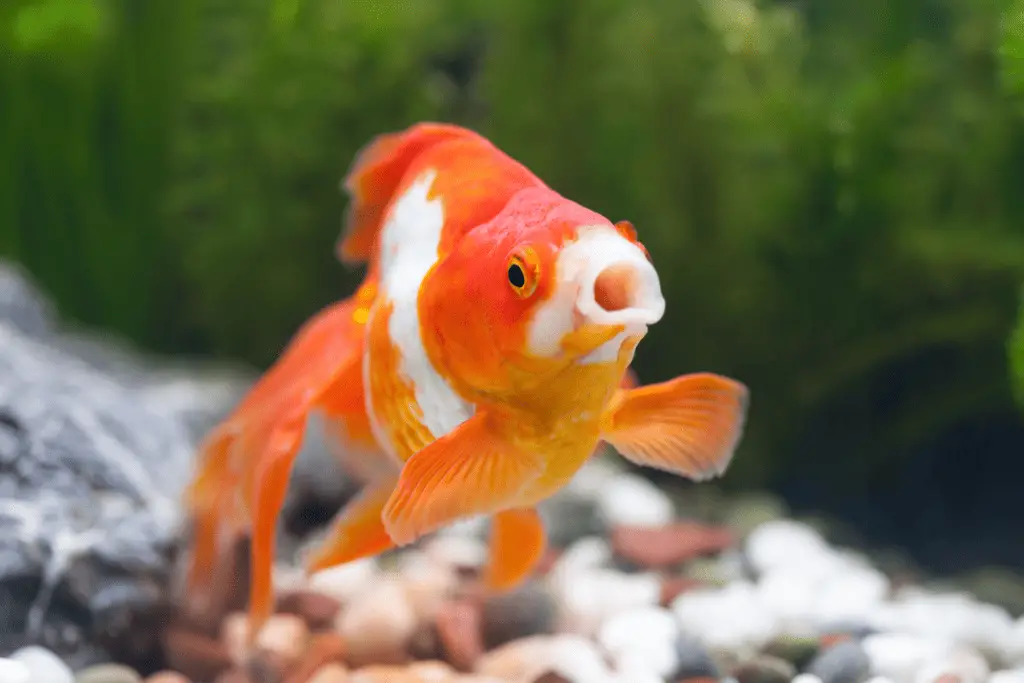
Decoding the Ingredients of Commercial Food
Just like a complex musical score, the list of ingredients on commercial fish food can seem daunting. It’s important to understand the key components, as they compose the main theme of your goldfish’s diet.
- Fish meal: This is usually the primary source of protein in goldfish food. It’s like the steady beat of drums, essential to the music but should not overpower the other elements.
- Wheat and soybean meal: These are the main sources of carbohydrates, the piano keys that provide the constant melody in the goldfish’s diet.
- Vitamins and minerals: Added to support overall health, they are akin to the harmonizing strings in an orchestra.
Always check the expiration date on commercial food. Old or improperly stored food can lose nutritional value, turning the rich symphony of nutrients into a tuneless whistle.
The Importance of Feeding Goldfish at the Right Time
Feeding time is akin to the timing of a musical performance. The best times to feed your goldfish are usually in the morning and at night, aligning with the natural feeding times of goldfish in the wild.
Goldfish don’t have stomachs, so they can’t store food. This is why feeding them in small amounts at regular intervals is like playing a symphony in well-timed movements, ensuring a smooth performance.
Dietary Changes for Different Life Stages
Just as a musical composition may change tempo throughout the performance, a goldfish’s dietary needs change throughout its life.
- Young goldfish: They require more protein for growth, similar to a lively, fast-paced allegro movement in a symphony.
- Adult goldfish: They need a more balanced diet, much like the measured andante tempo of a mature musical piece.
- Older goldfish: They may require more fiber to support digestion, resembling the slow, thoughtful adagio in a musical composition.
Adjusting the diet to match your goldfish’s life stage will ensure it receives the right nutrients at the right time.
Special Considerations for Fancy Goldfish Varieties
Fancy goldfish are like the virtuosos of the goldfish world, requiring special attention. Due to their unique body shapes and swim bladders, they may have difficulty eating certain types of food.
Sinking pellets are often a better choice than floating ones, as they prevent the fish from swallowing too much air, which could lead to buoyancy issues. Think of these as the low, soothing notes of a bassoon, designed specifically for these virtuoso performers.
Conclusion: A Harmonious Diet for Your Goldfish
Finding the best food for your goldfish is an artful blend of commercial foods and fresh supplements, a perfect symphony of nutrition. It’s about understanding the notes each type of food plays in your goldfish’s health and conducting them harmoniously.
Remember, your goldfish relies on you to orchestrate its diet. When balanced and varied, the melody of nutrition plays sweetly, leading to a healthy, vibrant, and long-lived goldfish.
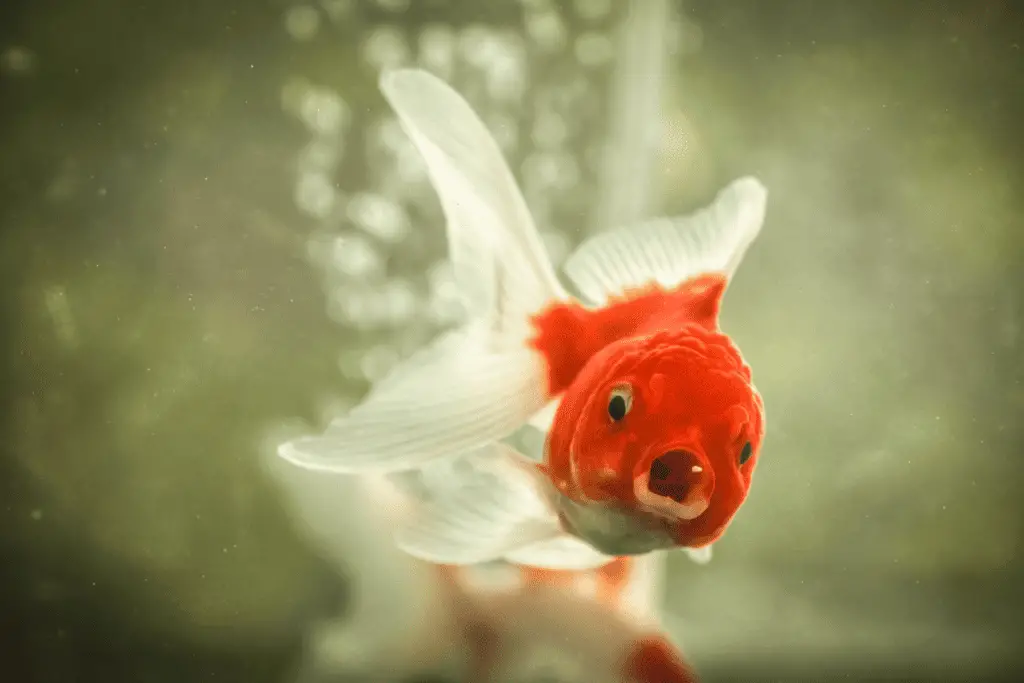
Frequently Asked Questions
Q1: How often should I feed my goldfish?
A1: It’s generally recommended to feed your goldfish twice a day, providing as much as they can consume within 2 minutes. This rhythm may need to be adjusted based on the specific needs and behavior of your goldfish.
Q2: Can I feed my goldfish only pellets or flakes?
A2: While pellets and flakes can provide a balanced diet, they should not be the sole food source. Like a monotonous tune, a diet of only pellets or flakes lacks variety. Supplementing with fresh foods adds different nutrients and keeps your goldfish’s diet interesting and balanced.
Q3: Can I feed my goldfish human food?
A3: Yes, but only certain types and in moderation. Vegetables and fruits can be a healthy addition to your goldfish’s diet. However, they should be washed and cut into bite-sized pieces. Proteins such as boiled egg yolk or cooked fish can also be offered, but sparingly.
Q4: Why is overfeeding harmful for goldfish?
A4: Overfeeding is akin to a chaotic orchestra, leading to several problems. It can result in poor water quality as uneaten food decomposes. It can also cause health issues such as bloating or swim bladder disease in your goldfish.
Q5: What should I feed a sick goldfish?
A5: If your goldfish is sick, it may need a specific diet based on its condition. It’s like fine-tuning a musical instrument – it requires precision and knowledge. Consult a vet or an aquatic expert to ensure you’re providing the correct diet during illness.
Q6: Do different goldfish breeds require different foods?
A6: While all goldfish are omnivorous, certain fancy breeds with unique body shapes may require specific types of food. For example, sinking pellets are often better for breeds prone to buoyancy issues. Always research your particular breed’s needs to ensure you’re feeding them appropriately.
Q7: Can I feed my goldfish insect larvae?
A7: Yes, feeding your goldfish insect larvae, like mosquito larvae or bloodworms, can be a nutritious supplement to their diet. This is akin to adding a new instrument to the orchestra, providing a unique and enriching sound. However, these should be given sparingly and never as the main diet. Always ensure any live food is disease-free to keep your goldfish healthy.
